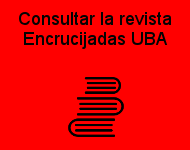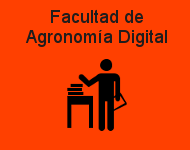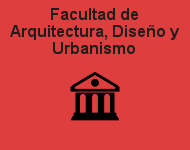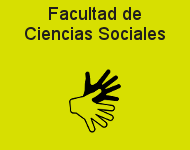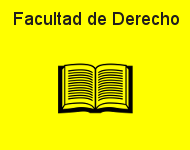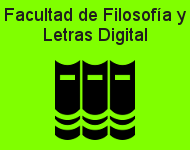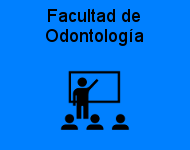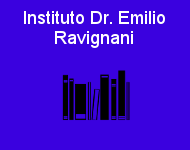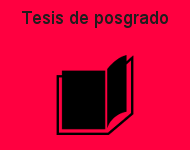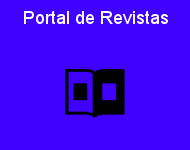Peláez, Gisela
En: http://revistascientificas.filo.uba.ar/index.php/zama/article/view/2196/1927
En: Zama; Vol. 7, núm. 7 (2015); 171-176
Temas: tango; phrasing; metrical structure ; tango; fraseo; estructura métrica ; tango; fraseo; estrutura métrica
Contenido: I’ve worked with the Naranjo en Flor chorus to analyse the tango phrasing of three singers: Jorge Linares, Floreal Ruiz and Roberto Goyeneche. I used specific software to measure in milliseconds the articulation of all the orchestral and vocal sounds, trying to understand the way they relate to each other. Considering that tango composers (like in many other vocal genres) try to synchronize the lyrics’ accents with the musical accents (or metrical structure), the listener expects that these accents would be coincident. But as I was able to notice in the analysis of these three examples, the singer’s phrasing doesn’t follow that logic. He slows it down or speeds it up, and in just a few cases he makes the phrasing sync with the orchestral accompaniment. Each one of these interpretations produces an expectation game with the audience, reinforcing the interpretation’s effect of spontaneity and uniqueness and it creates a sense of renewal in the meaning of the text, by intensification or even by contradiction.
...ver más Tipo de documento: info:eu-repo/semantics/article | Formato: application/pdf
Editor: Instituto de Literatura Hispanoamericana - FFyL-UBA
Fuente: Revistas Científicas de FILO
 New senses for Havana’s fiction. Jorge Enrique Lage: Many Havana(s) of the future
New senses for Havana’s fiction. Jorge Enrique Lage: Many Havana(s) of the futureNuevos sentidos para una ficción habanera. Jorge Enrique Lage: La(s) Habana(s) del porvenir
Viera, Katia
En: http://revistascientificas.filo.uba.ar/index.php/zama/article/view/9611/8375
En: Zama; Vol. 12 Núm. 12 (2020); 47-57
Temas: Havana ; Zero Generation ; cuban narrative ; Jorge Enrique Lage ; La Habana ; Generación Cero ; narrativa cubana ; Jorge Enrique Lage ; Havana ; Geração Zero ; narrativa cubana ; Jorge Enrique Lage
Contenido: The Cuban narrative, with some exceptions, has been characterized by two main ways: one heroic and one ironic (Álvarez-Tabío, 2001). The present text starts from the previous idea to demonstrate new forms of configuration the Havana city from the poetics of the young Cuban narrator, Jorge Enrique Lage, who seems to imagine in many of his texts Havana as a “plan B, an ephemeral place” (Luiselli, 2010).
...ver más Tipo de documento: info:eu-repo/semantics/article | Formato: application/pdf
Editor: Instituto de Literatura Hispanoamericana - FFyL-UBA
Fuente: Revistas Científicas de FILO
Monteleone, Jorge
En: http://revistascientificas.filo.uba.ar/index.php/zama/article/view/5389/4828
En: Zama; Vol. 10, núm. 10 (2018); 13-16
Tipo de documento: info:eu-repo/semantics/article | Formato: application/pdf
Editor: Instituto de Literatura Hispanoamericana - FFyL-UBA
Fuente: Revistas Científicas de FILO
Glantz, Margo
En: http://revistascientificas.filo.uba.ar/index.php/zama/article/view/5403/4842
En: Zama; Vol. 10, núm. 10 (2018); 149-151
Tipo de documento: info:eu-repo/semantics/article | Formato: application/pdf
Editor: Instituto de Literatura Hispanoamericana - FFyL-UBA
Fuente: Revistas Científicas de FILO
 Nietzsche in the Revista Moderna
Nietzsche in the Revista ModernaNietzsche en la Revista Moderna
Ruisánchez Serra , José Ramón
En: http://revistascientificas.filo.uba.ar/index.php/zama/article/view/7348/6596
En: Zama; Vol. 11 Núm. 11 (2019); 107-118
Temas: Nietzsche Friedrich ; Revista Moderna ; turn of the century Mexican Literature ; continental philosophy ; positivism ; Nietzsche Friedrich ; Revista Moderna ; modernismo mexicano ; filosofía ; positivismo ; Nietzsche Friedrich ; Revista Moderna ; literatura mexicana fim de século XIX ; filosofía ; positivismo
Contenido: This article explores both the tracts by Friedrich Nietzsche and the essays on his work published by Revista Moderna. This allows me to think the dialog between modernismo and positivism in Mexico, through the figure of the “philosopher-poet” that radically changes the way of expounding his thoughts from that of academic philosophy, and thus allows for the destabilization of the received ideas of the school of Gabino Barreda.
...ver más Tipo de documento: info:eu-repo/semantics/article | Formato: application/pdf
Editor: Instituto de Literatura Hispanoamericana - FFyL-UBA
Fuente: Revistas Científicas de FILO
Jitrik, Noé
En: http://revistascientificas.filo.uba.ar/index.php/zama/article/view/3418/3143
En: Zama; 2016: Extraordinario: Rubén Darío; 195-199
Tipo de documento: info:eu-repo/semantics/article | Formato: application/pdf
Editor: Instituto de Literatura Hispanoamericana - FFyL-UBA
Fuente: Revistas Científicas de FILO
Jitrik, Noé
En: http://revistascientificas.filo.uba.ar/index.php/zama/article/view/12370/11125
En: Zama. Revista del Instituto de Literatura Hispanoamericana; n. 14 (2022)
Tipo de documento: info:eu-repo/semantics/article | Formato: application/pdf
Editor: Instituto de Literatura Hispanoamericana - FFyL-UBA
Fuente: Revistas Científicas de FILO
 No longer Orpheus’ lyre but the qhirqhinchu of layqa: the conception of death in the Andean world in Rosa Cuchillo by Óscar Colchado Lucio and in El pez de oro by Gamaliel Churata
No longer Orpheus’ lyre but the qhirqhinchu of layqa: the conception of death in the Andean world in Rosa Cuchillo by Óscar Colchado Lucio and in El pez de oro by Gamaliel Churata“Ya no la lira de Orfeo sino el qhirqhinchu del layqa”: la concepción de la muerte en el mundo andino en Rosa Cuchillo de Óscar Colchado Lucio y El pez de oro de Gamaliel Churata
Di Benedetto, Matías
En: http://revistascientificas.filo.uba.ar/index.php/zama/article/view/9618/8380
En: Zama; Vol. 12 Núm. 12 (2020); 101-112
Temas: death ; history ; space ; Churata ; Colchado ; muerte ; historia ; espacio ; Churata ; Colchado ; morte ; história ; espaço ; Churata ; Colchado
Contenido: This text analyzes two of the most important works of modern Peruvian literature from the viewpoint of the concept of death in the Andean world. We thus review Gamaliel Churata’s El pez de oro and Oscar Colchado Lucio’s Rosa Cuchillo with a focus on the particular conception of the cosmological space associated with the dead and its relationship with History, no longer understood as progress but rather as a recovery from a past in constant tension with the present. We will see how both texts seek a vindication of local knowledges and alternative forms of organization of a territory-specific collective subject.
...ver más Tipo de documento: info:eu-repo/semantics/article | Formato: application/pdf
Editor: Instituto de Literatura Hispanoamericana - FFyL-UBA
Fuente: Revistas Científicas de FILO
 Noticia chronologica by Carlos de Sigüenza y Góngora: commentary and critical edition
Noticia chronologica by Carlos de Sigüenza y Góngora: commentary and critical editionNoticia chronologica de Carlos de Sigüenza y Góngora: apostillas y edición
Del Piero, Gina - Ruiz, Facundo
En: http://revistascientificas.filo.uba.ar/index.php/zama/article/view/13791/12332
En: Zama. Revista del Instituto de Literatura Hispanoamericana; No 15 (2023)
Temas: Noticia chronologica – Sigüenza y Góngora – baroque – novohispanic culture – lunarium ; Noticia chronologica – Sigüenza y Góngora – barroco – cultura novohispana – lunarios ; Noticia chronologica – Sigüenza y Góngora – barroco – cultura novo-hispânica – lunário
Contenido: Usually more commented on than researched in, it is well-known that Carlos de Sigüenza y Góngora (1645-1700) wrote and published astrological forecasts that ¾oftentimes forgotten¾ he made during his thirty years of public career, almost with no interruptions, until the year of his death. And, although he achieved a certain notoriety through them, he did not cease to distrust this practice because, as he said, “sé muy bien cuál es el pie de que la astrología cojea y cuáles los fundamentos debilísimos sobre que levantaron su fábrica”. The lunariums, even so, offered him an income and, even more, a platform from which he was able to display his research, findings and hypotheses. Thus, together with the lunarium of 1681, the "Noticia chronologica" was published, a text more than once mentioned by critics that —until now— was lacking an accessible and reliable edition, which made its study difficult. Here we offer, as a result of the comparison of the only two versions known to date (one manuscript, the other printed), an edition of this singular text, together with a brief apostille.
...ver más Tipo de documento: info:eu-repo/semantics/article | Formato: application/pdf
Editor: Instituto de Literatura Hispanoamericana - FFyL-UBA
Fuente: Revistas Científicas de FILO
Marinone, Mónica
En: http://revistascientificas.filo.uba.ar/index.php/zama/article/view/634/615
En: Zama; Vol. 4, núm. 4 (2012); 208-209
Tipo de documento: info:eu-repo/semantics/article | Formato: application/pdf
Editor: Instituto de Literatura Hispanoamericana - FFyL-UBA
Fuente: Revistas Científicas de FILO
Vásquez, Juan Gabriel
En: http://revistascientificas.filo.uba.ar/index.php/zama/article/view/5401/4840
En: Zama; Vol. 10, núm. 10 (2018); 143-144
Tipo de documento: info:eu-repo/semantics/article | Formato: application/pdf
Editor: Instituto de Literatura Hispanoamericana - FFyL-UBA
Fuente: Revistas Científicas de FILO
 Noé
NoéNoé
Monteleone, Jorge
En: http://revistascientificas.filo.uba.ar/index.php/zama/article/view/13790/12331
En: Zama. Revista del Instituto de Literatura Hispanoamericana; No 15 (2023)
Tipo de documento: info:eu-repo/semantics/article | Formato: application/pdf
Editor: Instituto de Literatura Hispanoamericana - FFyL-UBA
Fuente: Revistas Científicas de FILO
 Noé Jitrik and the conjectural narrative
Noé Jitrik and the conjectural narrativeNoé Jitrik y la narración conjetural
Néspolo, Jimena
En: http://revistascientificas.filo.uba.ar/index.php/zama/article/view/13815/12350
En: Zama. Revista del Instituto de Literatura Hispanoamericana; No 15 (2023)
Tipo de documento: info:eu-repo/semantics/article | Formato: application/pdf
Editor: Instituto de Literatura Hispanoamericana - FFyL-UBA
Fuente: Revistas Científicas de FILO
 Noé Jitrik or critical incessance
Noé Jitrik or critical incessanceNoé Jitrik o la incesancia crítica
Lespada, Gustavo
En: http://revistascientificas.filo.uba.ar/index.php/zama/article/view/13808/12343
En: Zama. Revista del Instituto de Literatura Hispanoamericana; No 15 (2023)
Contenido: .
...ver más Tipo de documento: info:eu-repo/semantics/article | Formato: application/pdf
Editor: Instituto de Literatura Hispanoamericana - FFyL-UBA
Fuente: Revistas Científicas de FILO
 Noé Jitrik, some certainties
Noé Jitrik, some certaintiesNoé Jitrik, unas certezas
Crespi, Maximiliano
En: http://revistascientificas.filo.uba.ar/index.php/zama/article/view/13809/12344
En: Zama. Revista del Instituto de Literatura Hispanoamericana; No 15 (2023)
Tipo de documento: info:eu-repo/semantics/article | Formato: application/pdf
Editor: Instituto de Literatura Hispanoamericana - FFyL-UBA
Fuente: Revistas Científicas de FILO
 Noé's ark
Noé's arkEl arca de Noé
Celorio, Gonzalo
En: http://revistascientificas.filo.uba.ar/index.php/zama/article/view/13806/12341
En: Zama. Revista del Instituto de Literatura Hispanoamericana; No 15 (2023)
Tipo de documento: info:eu-repo/semantics/article | Formato: application/pdf
Editor: Instituto de Literatura Hispanoamericana - FFyL-UBA
Fuente: Revistas Científicas de FILO
Sarduy, Severo - Segovia, Tomás - Rodríguez Monegal, Emir
En: http://revistascientificas.filo.uba.ar/index.php/zama/article/view/3422/3147
En: Zama; 2016: Extraordinario: Rubén Darío; 227-240
Tipo de documento: info:eu-repo/semantics/article | Formato: application/pdf
Editor: Instituto de Literatura Hispanoamericana - FFyL-UBA
Fuente: Revistas Científicas de FILO
Zama, editor
En: http://revistascientificas.filo.uba.ar/index.php/zama/article/view/638/619
En: Zama; Vol. 4, núm. 4 (2012); 221-226
Tipo de documento: info:eu-repo/semantics/article | Formato: application/pdf
Editor: Instituto de Literatura Hispanoamericana - FFyL-UBA
Fuente: Revistas Científicas de FILO
Zama, Editor
En: http://revistascientificas.filo.uba.ar/index.php/zama/article/view/1162/1142
En: Zama; Vol. 5, núm. 5 (2013); 225-229
Tipo de documento: info:eu-repo/semantics/article | Formato: application/pdf
Editor: Instituto de Literatura Hispanoamericana - FFyL-UBA
Fuente: Revistas Científicas de FILO
zama, editor
En: http://revistascientificas.filo.uba.ar/index.php/zama/article/view/1547/1471
En: Zama; Vol. 6, núm. 6 (2014); 221-228
Tipo de documento: info:eu-repo/semantics/article | Formato: application/pdf
Editor: Instituto de Literatura Hispanoamericana - FFyL-UBA
Fuente: Revistas Científicas de FILO
Kohan, Martín
En: http://revistascientificas.filo.uba.ar/index.php/zama/article/view/12359/11116
En: Zama. Revista del Instituto de Literatura Hispanoamericana; n. 14 (2022)
Contenido: .
...ver más Tipo de documento: info:eu-repo/semantics/article | Formato: application/pdf
Editor: Instituto de Literatura Hispanoamericana - FFyL-UBA
Fuente: Revistas Científicas de FILO
 The Ocean World. José Joaquín de Mora writes for the Hispanic- American public (1825- 1830)
The Ocean World. José Joaquín de Mora writes for the Hispanic- American public (1825- 1830)El mundo océano. José Joaquín de Mora escribe para el público hispanoamericano (1825-1830)
Baltar, Rosalía
En: http://revistascientificas.filo.uba.ar/index.php/zama/article/view/7340/6588
En: Zama; Vol. 11 Núm. 11 (2019); 33-45
Temas: José Joaquín de Mora ; press ; translations ; catechisms ; LatinAmerica ; José Joaquín de Mora ; prensa ; traducciones ; catecismos ; José Joaquín de Mora ; Hispamerica ; Catecismos ; Traduções ; Impresa
Contenido: It summarizes the construction of the Latin American reader in Catechisms and translations that have been made by an exiled spanish writer, José Joaquín de Mora, during his first stay in London (1824- 1826). This reader image has been built as an apprentice and a pair at the same time.
...ver más Tipo de documento: info:eu-repo/semantics/article | Formato: application/pdf
Editor: Instituto de Literatura Hispanoamericana - FFyL-UBA
Fuente: Revistas Científicas de FILO
 Of life and death: the Quiroga challenge
Of life and death: the Quiroga challengeDe vida y de muerte: el desafío Quiroga
Rocca, Pablo
En: http://revistascientificas.filo.uba.ar/index.php/zama/article/view/13807/12342
En: Zama. Revista del Instituto de Literatura Hispanoamericana; No 15 (2023)
Tipo de documento: info:eu-repo/semantics/article | Formato: application/pdf
Editor: Instituto de Literatura Hispanoamericana - FFyL-UBA
Fuente: Revistas Científicas de FILO
 One's dream is part of everyone's memory
One's dream is part of everyone's memoryEl sueño de uno es parte de la memoria de todos
Antelo, Raúl
En: http://revistascientificas.filo.uba.ar/index.php/zama/article/view/13805/12340
En: Zama. Revista del Instituto de Literatura Hispanoamericana; No 15 (2023)
Tipo de documento: info:eu-repo/semantics/article | Formato: application/pdf
Editor: Instituto de Literatura Hispanoamericana - FFyL-UBA
Fuente: Revistas Científicas de FILO
Antelo, Raúl
En: http://revistascientificas.filo.uba.ar/index.php/zama/article/view/4051/3654
En: Zama; Vol. 9, núm. 9 (2017); 21-42
Temas: dadaism; absence; exclusion; division ; dadaismo; ausencia; exclusión; división ; dadaismo; ausência; exclusão; divisão
Contenido: Philology is founded in poetry because the actual ground for literary criticism must be found in the structure of poetry. Tzara used to say that Dada applies itself to everything, and yet it is nothing, it is the point where the yes and the no and all the opposites meet. Like everything in life, Dada is useless. In Brazilian literature Dada´s legacy is openly neglected because of its deliberate negation of art. Dada sought to destroy art since art itself was negative. No place in literary history for a poetry whose conception of art is absence, exclusion, and division.
...ver más Tipo de documento: info:eu-repo/semantics/article | Formato: application/pdf
Editor: Instituto de Literatura Hispanoamericana - FFyL-UBA
Fuente: Revistas Científicas de FILO
Jitrik, Noé
En: http://revistascientificas.filo.uba.ar/index.php/zama/article/view/7359/6607
En: Zama; Vol. 11 Núm. 11 (2019); 187
Tipo de documento: info:eu-repo/semantics/article | Formato: application/pdf
Editor: Instituto de Literatura Hispanoamericana - FFyL-UBA
Fuente: Revistas Científicas de FILO
Jitrik, Noé
En: http://revistascientificas.filo.uba.ar/index.php/zama/article/view/7351/6599
En: Zama; Vol. 11 Núm. 11 (2019); 141-143
Tipo de documento: info:eu-repo/semantics/article | Formato: application/pdf
Editor: Instituto de Literatura Hispanoamericana - FFyL-UBA
Fuente: Revistas Científicas de FILO

